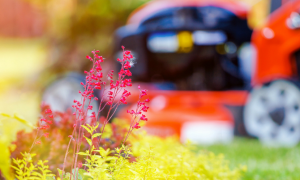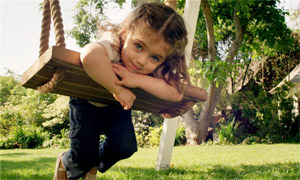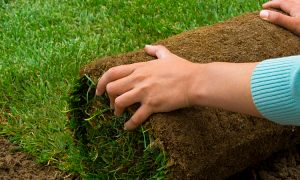Guest post by Jackie Greene
When you have your own home and are responsible for your lawn care, should you do it yourself? There are two sides to DIY, good and bad. On the bad side first, if you don’t know what you’re doing, there can be consequences. But you could consider it as a learning experience too, and it will save you money.
What pros and cons would a homeowner face in this consideration?
The Pros
- You’ll save money with DIY lawn care, sometimes the extra cost of a professional can be expensive. If you’re on a tight budget, it might not be possible to hire one anyway. In fact, the average price for a single lawn mowing service is $43 per service, according to LawnStarter Lawn Care.
- Mowing grass is excellent exercise, and you’ll work up a sweat in no time; especially if you’re using a walk behind mower. Yes, the mower does do a lot of the work, but you still have to hold on to it and guide it. Plus, you have the troublesome spots on the unlevel areas. But it gives you a great workout!
- Many homeowners take pride in caring for their lawn themselves. They know where each patch of crabgrass is and where the last dandelion is hiding. They take pride in the beauty of their green yards and interesting gardens that add so much beauty.
- It encourages interaction with your neighbors as you discuss the best fertilizer and lawn care products. Plus, saying can you help with my brown spot and do you have moles too?
- You will notice more easily things that need your attention. You will find that hole behind a bush that the dog dug trying to escape. Or, whether it’s time to dethatch the lawn or can it wait another week.
- If your lawn is thick, it will need dethatching to permit the grass to breathe. Instead of racking your back though you can rent or buy a power dethatcher. This you can do yourself with very little help except for the raking up of the debris.
- You have more control over how high you want your to be grass mowed. When the temperature starts to rise, the height of your lawn should too. When you mow too low, then you’re opening up the possibility of weeds because weeds need light to sprout. If you have a kid from down the street mow your lawn, you can’t always control the grass height if it’s their lawn mower.
The Cons
- There can be some drawbacks with DIY lawn care such as finding the correct lawn products. Since homeowners don’t usually have the skilled expertise that lawn care companies do or access to commercial grade products, they have to keep on buying different products until they figure out what works the best.
- The results of all your hard work may be mediocre as you struggle with crabgrass and dandelions. Or worse, you could have grubs, and without professional help, you may not be able to control them.
- There are hidden costs of taking care of the lawn yourself which you may not have factored into it. Without professional input, there are some things you could be missing or doing incorrectly. You could be using incorrect ratios when spreading or spraying your lawn. Or, perhaps misusing a pest control product which could harm the environment, your landscape, hardscape; or even your lawn.
- When you do your lawn care, you could have problems storing the containers of product you need for your lawn. You will have to secure weed, lawn, and disease treatments in a place which will be moisture proof and cold weather proof. Plus, if you have children, storing products safely and out of reach can be a big concern.
- You might not have the experience to know if the big brown spot if from Fred, your dog, or because you have some type of fungus growing which is slowing killing your grass. You may not be able to treat this without some kind of professional opinion given.
- If you really gouge your lawn, the professional that you hire to repair it is going to cost real money.
Whether you do your own lawn care or hire a professional, a great lawn is something everyone wants to have.
Jackie Greene is a blogger, gardener, and nutrition enthusiast. She enjoys creating organic meals for family and friends using the fresh ingredients she produces from her backyard homestead.
Which DIY projects have the biggest return on investment? Find out here.







I AM ENJOYING THE INTERESTING INFORMATION